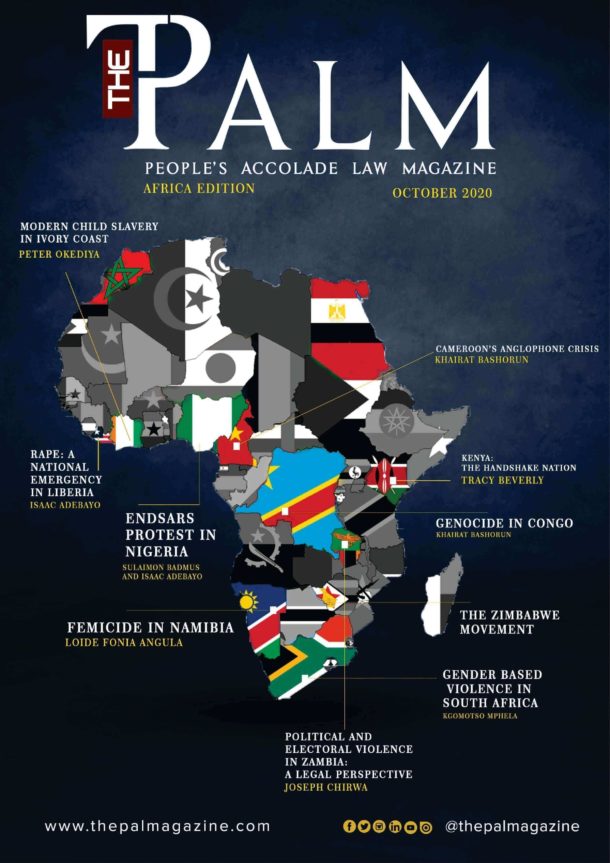The world’s biggest oil company, Saudi Aramco, recently revealed its plans to build a nearly $1 billion solar power plant[1]. This is a part of their steps to expand renewable energy supply. During the course of the week, I completed an online course with the Chartered Institute of Arbitrators and I was sent an e-certificate instead of a paper one because they aim ‘to reduce their carbon footprints.” Well, I could keep identifying instances portraying global economy’s transition to green energy however, this paper is to serve another imminent purpose. The question is, where does Nigeria stand in the global scheme of things as regards the energy industry?
The ‘newly’ passed Petroleum Industry Act 2021 has been portrayed as Nigeria’s saviour from economic woes and the crippling oil and gas industry, however the Act started off as a bill which was dragged and delayed for nearly twenty years. This directly means the application of the Act was due twenty years ago, save for amendments and modifications by various administrations.
On August 16 2021, President Buhari signed the 5-chapter bill into law. This was met with heart-warming jubilations and self-aggrandizement by the political class, and while there is a reason to celebrate, it is quite unfortunate to note that what should have been done thirteen years ago when the bill was first presented to the House, is just being done today. Major oil producing countries have exceeded these stages and are taking up new advancements that will open their economies to global prosperity. The ineluctability of future upheavals is a core reason why we cannot dwell long on this ecstasy-cloned catastrophe, as much is still left undone.
We must as such, as a country, seek to forge ahead. On this backdrop, I will extrapolate some germane topics in the Petroleum Industry Act in order to provide clarity, expunge misconceptions, proffer proper recommendations and save us from a show of international opprobrium.
THE NEW REGULATORS: COMMISSION AND AUTHORITY.
Prior to the enactment of the Petroleum Industries Act (hereafter referred to as the ‘PIA’), the Nigerian National Petroleum Corporation (NNPC) was a body that stood and acted as an operator and a regulator. This made the roles of the NNPC nebulous and susceptible to maladministration and exponential losses.
The PIA 2021 now provides for the bifurcation of regulation duties in two regulating bodies, namely, the Nigeria Upstream Regulatory Commission and the Nigeria Midstream and Downstream Petroleum Regulating Authority. The former is with respect to the upstream petroleum operations while the latter is for the midstream and downstream operations. This is an impressive initiative from the drafters of the PIA because the arrangement ensures accountability, coordination and transparency in the oil and gas sector.
PRIVATIZATION OR COMMERCIALIZATION: THE NNPC LTD.
For the record, by the virtue of section 53(1) of the PIA 2021, the NNPC will be renamed Nigerian National Petroleum Company Limited (NNPC Ltd).
It is now pertinent to draw the distinction between privatization and commercialization because this has led to some misleading interpretations of the Act. Privatization means a private company taking over some or all operational responsibilities, compensated either through user fees or a fee-for-service paid by the government. On the other hand, commercialization is the process of transforming a transaction into a commercial activity in which goods or services acquire monetary value. [2]
Upon sighting the words “…Company Limited” for the NNPC Ltd, the spontaneous reaction of most people was a conclusion that the NNPC has been privatized. The appropriate meaning in line with the statutory provision is that NNPC Ltd will be formed from the NNPC but will be incorporated under the Companies and Allied Matters Act and commercially focused. The government owns the shares in the company, held by the Ministry of Finance Incorporated and the Ministry of Petroleum Incorporated on its behalf. [3]
For the sake of emphasis, the provision of Section 53(3) is reproduced below:
Ownership of all shares in NNPC Limited shall be vested in the Government at incorporation and held by the Ministry of Finance Incorporated and the Ministry of Petroleum Incorporated in equal portions on behalf of the federation and the Ministry of Petroleum Incorporated is incorporated under the provisions of the eight schedule to this Act.
While some people may frown at this development, it is pertinent to note that the NNPC had not been working with a lucid strategy on whether to make profits or serve the public’s interest. Amidst this confusion, we have seen the price of fuel increase rapidly despite millions of naira spent on subsidies. The path to sustainable efficiency is productivity. When losses are made annually by the NNPC, their services will no longer serve the public’s interest but will only bring about hardship and indecisiveness in the economy as we have seen in the previous years. Commercialization ensures that the oil and gas sector is productive and profitable to the economy. Market-oriented solutions such as this have proven to be more effective.
Saudi Arabia has been operating with this model through Saudi Aramco, the official Saudi Arabian oil company with a net income of 49 billion dollars in 2020. [4] Therefore, the PIA Act is in concinnity with international best practices in this respect.
THE END OF SUBSIDY ERA?
Subsidies on fuel may not stay for long anymore. Over the years, it has been realized that subsidy only takes from our pocket and does not add any working value to the economy. It puts us in debts as it pushes the country to take loans. This does not sound like proper management in any form. Citizens still buy fuel at exorbitant rates and subsidies don’t even regulate prices anymore.
When the PIA 2021 commences, we may likely not have subsidies on petroleum products anymore. Private oil companies and operators will be able to determine the price of petroleum products using the market forces of demand and supply and other economic variables. In order to prevent inordinate increase in fuel price by private operators, this will only take effect under the supervision and control of the two regulatory bodies earlier mentioned.
THE FRONTIER EXPLORATION FUND EXPLAINED.
This brings us closer to the root of the brouhaha that has occasioned the PIA 2021. The provisions concerning the frontier exploration fund in the PIA has been met with criticisms and rancour orchestrated by people sowing seeds of discord among Nigerians.
In basic terms, the PIA says that 30% of “profit oil and profit gas” earned shall be invested in frontier exploration. Frontier exploration refers to the process of exploring hydrocarbons such as crude oil, natural gas, coal and other energy sources in the inland basins such as the Anambra basin, the south-eastern sector of the Chad basin, the mid-Niger basin and the Sokoto basin.
It is pertinent to note that the frontier exploration encapsulates the whole of Nigeria and not to a particular sect or tribe. This does not preclude any geopolitical zone. The objective is to develop new areas for oil exploration in the country.
THE 3 PER CENT VENTS: HOST COMMUNITIES’ LEMON JUICE
This has to be the most misconstrued provision in the PIA 2021. The Act, in Section 240(2), stipulates that 3% of the actual annual operating expenses of an oil company must be paid to the host communities. This contribution makes up the host communities trust fund. Note that this does not mean 3% of profits or revenue generated by oil companies. The 3% of the operating expense by an oil company is quite reasonable for both investors and the host communities. This is because the host communities will get paid whether or not an oil company makes profits and it’s an affordable fee for oil companies such that it attracts more investments.
This ushers in another tricky issue, who are the host communities?
According to Section 318 of the Act, host communities are communities situated in or appurtenant to the area of operation of a settlor, and any other community as a settlor may determine.
If an operator (an oil company) commences drilling operation in a community and passes the pipeline and other equipment for oil exploration through two other communities, such company will have three communities in its host communities trust fund which he has to pay 3% of its annual operating expenses into.
More so, addressing the challenge of mismanagement of funds by host communities, the Act directs the operator to set up a Board of Trustees who shall manage the host communities trust fund for the benefits of the host communities.
From the 3% contributed to the communities, 75% of it must go into infrastructure and projects within the communities, 20% of it will serve as a reserve fund and 5% will be used to running the trust by the Board of Trustees.
If there are more than one operator in a community, the operators cannot validly consolidate their expenses and pay 3%. Each operator will create their own trust fund, Board of trustees, and pay 3% separately to such community.
It is my belief that if the PIA Act is strictly implemented, the host communities will be in a better position to experience massive development unlike before. It aptly correlates with the saying that when life gives you lemons, you make lemon juice.
FATE OF CURRENT NNPC’S WORKERS.
As against popular misconception by the public that the implementation of the PIA will lead to mass retrenchment of workers, the PIA actually expressly provides for the retention of workers.
Section 57 of the Act states:
Upon incorporation of NNPC Limited under Section 53 of this Act, employees of NNPC and its subsidiaries shall be deemed to be employees of NNPC Limited on terms and conditions not less favourable than that enjoyed prior to the transfer of service and shall be deemed to be service for employment related entitlements as specified under any applicable law.
KEY OBSERVATIONS AND RECOMMENDATIONS
The PIA has been passed into law. We wait patiently for its commencement, and of course, its implementation. Taking a cue from the introductory paragraph in this paper, it is palpable that we have been left behind, or better said, we let ourselves stay behind. At this moment, we should be deliberating on harnessing renewable energy for economic growth and creating a legal framework for sustainable environment.
Interesting to note is the fact that the Economic Community of West African States in its document on ECOWAS Renewable Energy Policy, set year 2030 as a target for renewable energy penetration at the regional level to ensure ‘ECOWAS universal access’. [5]
While 2030 seems far from now, there is no gainsaying that the Nigerian government is not prepared to reduce its investment in petroleum and betting on it for a stable economy. Hence, the target is utopian for the Nigerian government. In fact, majority of the IOCs (International Oil Companies) have set up mechanisms for investments into renewable energy. Nigeria will be in a delirious position if the government does not invest in the renewable energy sector early enough.
To this end, the implementation of the PIA should be expanded to enable investments into renewable energy sources. By so doing, investors will be attracted, and there will be a smooth transition to clean energy.
The author is an Associate Editor at The PALM, he can be reached via okediyapi@gmail.com or okediya@thepalmagazine.com
END NOTES
[1] Bloomberg, ‘Aramco Joins Group Building Giant Solar Plant in Saudi Arabia [2021] https://www.bloomberg.com/news/articles/2021-08-15/aramco-joins-group-building-giant-solar-plant-in-saudi-arabia accessed 19 August 2021
[2] K Bayliss and T. Kessler, Can Privatization and Commercialization of Public Services Help Achieve the MDGs?’, GSRDC Publications, 2006, https://gsdrc.org/document-library/can-privatisation-and-commercialisation-of-public-services-help-achieve-the-mdgs/ accessed 19 August 2021
[3] TheCable, ‘Commercialization of NNPC, two regulatory bodies …what you need to know about the new Petroleum Act’ [2021], https://www.thecable.ng/commercialisation-of-nnpc-two-regulatory-agencies-what-you-need-to-know-about-the-new-petroleum-act accessed 19 August 2021
[4] Wikipedia, Saudi Aramco, https://en.wikipedia.org/wiki/Saudi_Aramco accessed 19 August 2021
[5] ECOWAS Renewable Energy Policy (EREP), 2012, https://www.aecid.es/Centro-Documentacion/Documentos/Instrumentos%20de%20pol%C3%ADtica%20exterior/151012_ecowas_renewable_energy_policy_final.pdfaccessed 19 August 2021

























































